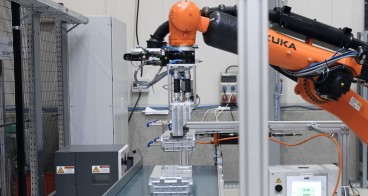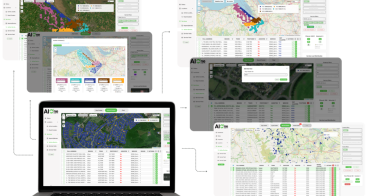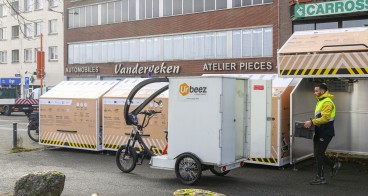Thessaloniki: data-driven decisions for urban freight

The Challenge
Thessaloniki aims to effectively collect and use data on urban freight to strategically meet CO2 reduction targets.
The expected solution must be:
- Accurate, real-time data on CO2 from freight: provide access to new sets of accurate, real-time data that shows the current state of CO2 emissions from freight, such that the city can plan to decrease freight traffic and reach their targets
- Enhanced traffic management: allow understanding of traffic flows during peak hours with a focus on planning to strategically reduce the number and duration of stops made by delivery vehicles.
- Increased stakeholder collaboration: enhance the number and quality of collaborations among city planners, logistics companies, and technology providers, as evidenced by participation in roundtable discussions and joint projects.
Who can apply?
The call is open to startups and SMEs. As a mono-beneficiary scheme, it is aimed at single legal entities and all proposals must therefore be submitted by a single entity. Consortia are not permitted.
Additionally:
They must be registered as legal entities in either an EU member state or a third country associated with Horizon Europe, including the United Kingdom.
To ensure a balanced project portfolio, SMEs selected for the EIT Urban Mobility 2024 RAPTOR Call and the previous SME Market Expansion 2024 open call are not eligible to apply for this call.
Background
Urban freight operations in Thessaloniki contribute to approximately 20% of the total kilometres travelled by vehicles within the city. As the city aims for climate neutrality, it is essential for city authorities and urban planners to base their decisions on accurate, real-time data. This data is crucial not only for optimising traffic conditions, but also for enhancing the overall quality of life for residents.






